Contents
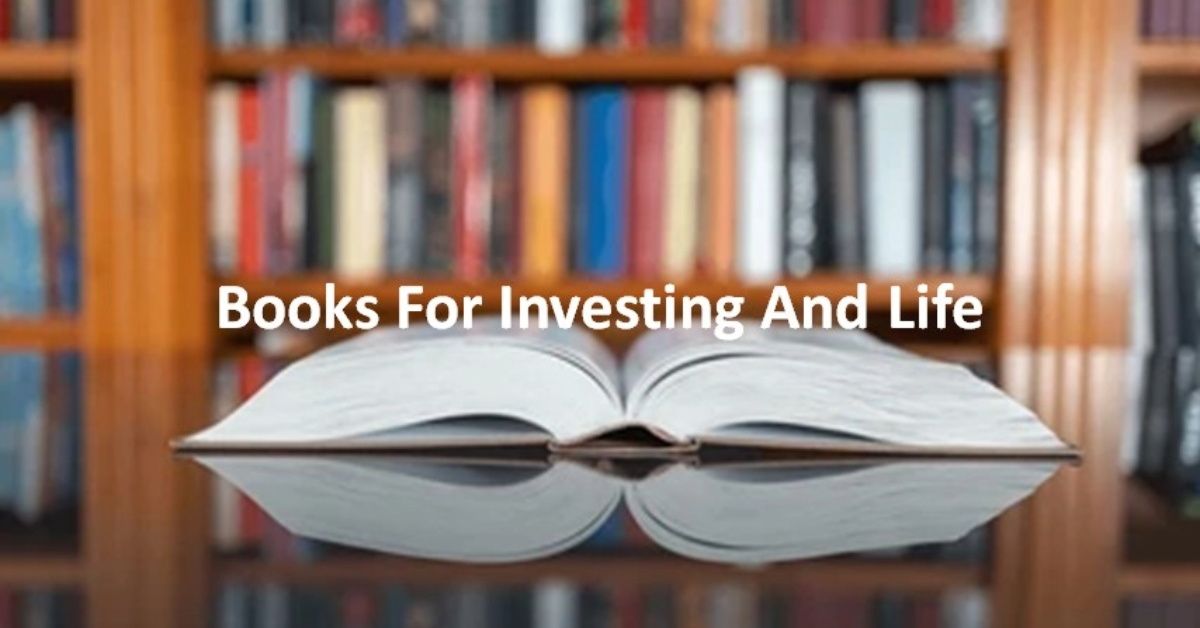
After several suggestions over a few years (I work quickly), I have added a ‘Books’ page. On this page, I share a selection of books I have found to be entertaining and/or thought-provoking.
I have also added FFJ Portfolio Holdings and FFJ Portfolio Monthly Dividend Income links at the top of the website.
I try to be disciplined as opposed to ordering every book I think might be interesting. In some cases, I may read a book only once. For the most part, however, I may re-read in whole or in part, the books I have in my office. I can breeze through some books but some are a ‘challenge’; I have to read them a chapter at a time and sometimes with several days in between each chapter.
In my November 8 Recommended Reading post I provided a few recommendations which are also reflected on my ‘Books’ page.
Here are another 5 books, in no particular order of personal preference, that I did not struggle to complete!
by William Green
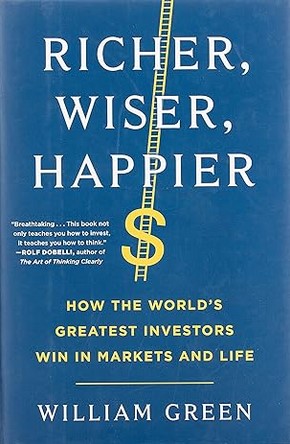
The author shares his learnings from interviews conducted over 25 years with many of the world’s greatest investors such as (but not limited to) Sir John Templeton, Charlie Munger, Jack Bogle, Ed Thorp, Will Danoff, Mohnish Pabrai, Bill Miller, Laura Geritz, Joel Greenblatt, Howard Marks, and Thomas Russo.
He discovered that their talents extend well beyond the financial realm. The most successful investors are mavericks and iconoclasts who question conventional wisdom and profit vastly from their ability to think more rationally, rigorously, and objectively. They consciously maximize their odds of long-term success in markets and life, while also minimizing any risk of catastrophe. They draw powerful insights from many different fields, are remarkably intuitive about trends, practice fanatical discipline, and have developed a high tolerance for pain.
In this book, we learn how the best investors can teach us how to become rich. However, we also learn how to improve the way we think, reach decisions, assess risk, avoid costly errors, build resilience, and turn uncertainty to our advantage.
by Guy Spier
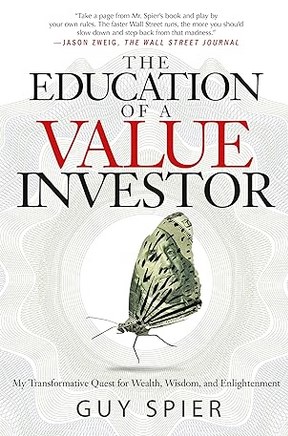
Guy Spier is a Zurich-based investor who manages the Aquamarine Fund which currently has ~$0.35B in assets under management.
Through a series of transformations and self-realizations, Spier gained many powerful insights about investing and business, including
- why the right mentors and role models are the key to long-term success as an investor;
- how a top-notch education can get in your way;
- why self-knowledge is so critical to becoming a great investor; and
- how Buffett taught him that the ultimate goal in life is to be true to yourself.
For those who want to take a different path, Spier provides the insight, guidance and inspiration needed to succeed on our own terms.
by Sheelah Kolhatkar
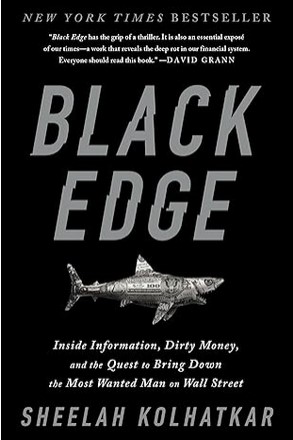
Think everyone plays by the same rules when it comes to investing? Not a chance!
Steven A. Cohen was revered as one of the greatest traders. That image was shattered when his fund, SAC Capital, became the target of a seven-year government investigation. Prosecutors labelled SAC a ‘magnet for market cheaters’ whose culture encouraged the relentless pursuit of inside information.
SAC was ultimately indicted and pleaded guilty to charges related to a vast insider trading scheme. In 2013, SAC paid a record $1.8B fine becoming the first major Wall Street institution in a generation to plead guilty to criminal misconduct.
While Cohen was never charged by prosecutors, he reached an agreement in 2016 with federal securities regulators barring him from managing client funds until 2018. Under the agreement, Cohen did not have to pay any penalties, nor did he admit or deny any of the SEC’s charges. This was essentially a ‘slap on the wrist, as the Securities and Exchange Commission insider-trading investigation had sought a lifetime ban from the industry; he had been accused of failing to properly supervise 8 SAC employees who either pleaded guilty of securities fraud or were found guilty at trial.
In the wake of the fine, the fund managed by Cohen rebranded itself as a family office called Point72 Asset Management and now manages Cohen’s personal fortune.
It does not appear life has been too challenging for Cohen as his real-time personal net worth exceeds $19B according to Forbes. In 2020, Cohen acquired the New York Mets for $2.4B.
On a positive note, Cohen has donated $1B to philanthropic causes over his lifetime, including causes related to veterans and children’s health. I leave it to you to decide if his philanthropy makes up for his unscrupulous activities.
Moneyland – The Inside Story Of The Crooks And Kleptocrats Who Rule The World
by Oliver Bullough
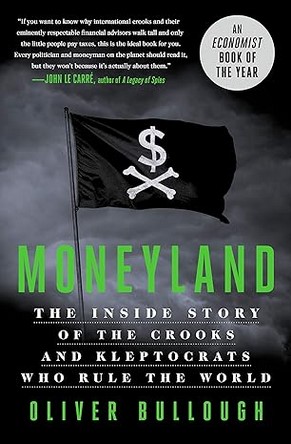
Kleptocracies, governments run by corrupt leaders that prosper at the expense of their people, are on the rise.
It used to be that if an official stole money, he/she could buy a new car, build a nice house, or give it to friends and family. At some point, however, the stolen money would come in so fact that this corrupt official would run out of means by which to conceal all the money being stolen.
Eventually, institutions in Europe and the United States realized they could make some serious money by aiding these corrupt officials. They diversified their sources of revenue by aiding these kleptocrats in funnelling their ill-gotten gains into Moneyland – the secret country of the lawless, stateless superrich.
by David Einhorn
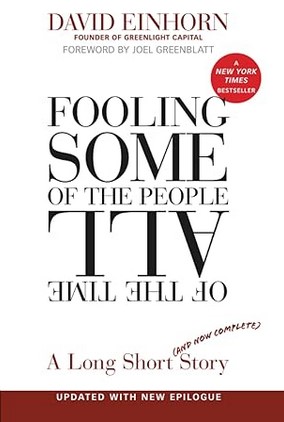
In 1996, David Einhorn, President of Greenlight Capital and one of the country’s top investors cofounded Greenlight Capital; Greenlight is a value-oriented investment advisor whose goal is to achieve high absolute rates of return while minimizing the risk of capital loss.
In 2002, Einhorn was asked at a charity investment conference to share his best investment advice. His recommendation was to short-sell Allied Capital which, at the time, was a leader in the private financing industry. Einhorn claimed Allied was using questionable accounting practices to prop itself up. In this book, Einhorn explains the extent to which Allied went to mislead investors and regulators.
This book illuminates how questionable company practices are maintained and, at times, even protected by Wall Street.
In 2008, Einhorn advised the same conference to short-sell Lehman Brothers. Many parts of the Allied Capital story were replayed in the debate over Lehman Brothers. Investment banks, analysts, journalists, and government regulators failed AGAIN!
I wish you much success on your journey to financial freedom!
Note: Please send any feedback, corrections, or questions to finfreejourney@gmail.com.
Disclaimer: I do not know your circumstances and do not provide individualized advice or recommendations. I encourage you to make investment decisions by conducting your research and due diligence. Consult your financial advisor about your specific situation.
I wrote this article myself and it expresses my own opinions. I do not receive compensation for it and have no business relationship with any company mentioned in this article.

